Table of Contents
This letter was originally sent out via dormspam. You can read the original letter here.
We, the MIT Jews for Ceasefire (J4C), are writing today on behalf of Jews on campus who feel silenced and misrepresented. Despite many attempts to have good-faith meetings with administration, and despite administration’s promises that our voices are valued and would be included in campus conversations on antisemitism, we have been stonewalled and given the run-around for months. Meaningful institutional support has been nonexistent.
Background
We came together in a painful moment on MIT’s campus, when a peaceful protest for Palestinian liberation was violently disrupted. On the morning of November 9th, many of us sat peacefully in Lobby 7 alongside our siblings in the Coalition Against Apartheid (CAA) when a group that we now understand to be the MIT Israel Alliance (MIT IA) rushed in wearing Israeli flags as capes. They approached us, hovered over us, stepped on us, pushed us, ripped signs from our hands, threw flyers of violent imagery onto us. They verbally harrassed us, yelled that we would be raped, told us G_d made a mistake by having us born Jews, called us antisemitic, self-hating Jews, and Hamas. Our community—members of CAA and other groups in the Coalition for Palestine—were the ones checking in with us and keeping us safe.
As a Jewish group on campus, we have a vested interest and unique experiences to lend to campus conversation on antisemitism. We know intimately what it feels like to be the target of antisemitic hate: it is upsetting, degrading, and dehumanizing. We also know that it is incumbent on us to speak up for Palestinians, call for a permanent ceasefire, an end to the occupation of Palestine and to the Israeli apartheid system, and for MIT to divest from research projects complicit in the ongoing genocide. One of the tools used to suppress this struggle has been the false equating of criticism of Israel and antisemitism. To suggest that condemnation of a nation-state’s acts of genocide is inherently antisemitic—a claim that reactionary conservatives have levied against CAA, and one that the MIT administration is in danger of endorsing—stifles freedom of speech (with dire consequences!) and falsely hinges Jewish safety on an ethnostate premised on expulsion and exclusion of its indigenous population.
Growing our group
Our group has blossomed into a thriving community, home to many Jewish students, staff, and faculty, especially those who have not felt supported by either of the two institutional Jewish spaces on campus, both of which are explicitly Zionist organizations. Our organization is filling a need that has existed for generations, a space to be Jewish that celebrates the here and now, the diasporic beauty that is the Jewish people: a vision of Judaism where our safety should be guaranteed wherever we are, and not inherently linked to the existence of a colonial nation-state.
Standing Together Against Hate
In the wake of the November 9th protest, the MIT administration announced the Standing Together Against Hate (STAH) initiative. STAH was advertised as a community-driven initiative to “support efforts led by MIT faculty, staff, students, and the administration to come together, MIT-style, to use our problem-solving skills to address antisemitism, Islamophobia, and other forms of hate.” We were told, time and again, that our voices were important to this initiative. In one of our many meetings about creating a space for a non-Zionist perspective on campus, President Kornbluth told us that we would “certainly be a part of the conversation on antisemitism.”
Many meetings and a cascade of disappointments
(1) In November 2023, we asked President Kornbluth and Chancellor Nobles to formally adopt a definition of antisemitism as part of STAH. We were concerned that without a collective understanding of what is, and what is not, antisemitism, charges of antisemitism can be unjustly weaponized to silence legitimate criticism of Israel’s genocidal actions and MIT’s complicity in those actions. How can we move towards challenging antisemitism on campus when we don’t have a common understanding of what it is? MIT administration refused to adopt a specific definition of antisemitism, allowing them to levy the accusation of “antisemitism” to stifle free speech.
(2) In November 2023, our request to be involved with STAH was met with placating enthusiasm. We were told that STAH is not a committee on which we could be offered a seat, but that there would be a series of lectures and they would like us to suggest speakers. Although we followed up multiple times to discuss our suggestions, we heard nothing until the whole program was announced, without any involvement from J4C.
We reached out again in January 2024 to see how we can be a part of the conversation. The administration suggested we apply for funding via the MindHandHeart Innovation Fund program through STAH so we could independently host our suggested speakers. Yet again, although our application was received positively, the committee said they would only supply money for food for our Shabbat dinners—which are already funded through other means and are very well-attended. When we inquired about speakers, MIT administration let us know that no money could go toward additional speakers, as there were already enough speakers for our topics of interest on campus. When we asked if they could, at the very least, help us publicize our speakers (if we are able to find the funds elsewhere), we were once again told no. The message was clear: the administration was not interested in supporting our voices.
(3) In January 2024, we met with Rabbi Fisher from MIT Hillel to discuss our concerns with an antisemitism training Hillel was planning to run during the “I Am a LEADer conference” over IAP, MIT’s January term. Specifically, we were concerned with the way criticism of Israel was incorporated into the definition of antisemitism. When we asked that conversations about Zionism be removed from the presentation slides, we were met with “I simply cannot do that, Hillel is a Zionist organization.” We raised concerns about the harms this training would create, requesting to slow the process down to make time for a conversation within the Jewish community at MIT, to which the administration impatiently retorted, “we have to get this out. We have to get something out.” Does the administration care more about hastily scrambling to appease external pressures than keeping their students safe?
(4) In March 2024, we met with administration again, this time to convey our frustrations trying—and failing, repeatedly—to be a part of the campus conversation on antisemitism. We are frustrated that we have been jumping through hoops while MIT administration shuffles their own goals, resources, and plans. We are frustrated that MIT Hillel and Chabad, which are both explicitly Zionist, are the only Jewish institutions on campus, and seem to be the only Jewish voices taken seriously by the MIT administration. We are frustrated that there seems to be no attempt to include students who are directly impacted by conversations surrounding antisemitism.
We left that last meeting with two things: a verbal apology for the time we’ve wasted chasing empty promises, and an invitation to participate in a set of future working groups under the Campus Climate Initiative (CCI). The CCI will result in a series of recommendations for MIT on how to move forward in challenging antisemitism. What was not mentioned in this meeting, and what we learned only after, is that the CCI is a program led by Hillel International, the very institution that we were raising concerns in this meeting about. We question the validity of the CCI due to Hillel International’s undisguised pro-Israel bias. We have no confidence that the resulting recommendations will represent our Jewish perspective, and thus are not interested in participating in this initiative. We also question MIT administration’s absurd cognitive dissonance: how can you acknowledge, in closed-door meetings, that Hillel fails to represent a significant portion of the Jewish community at MIT, agree that Hillel’s privileges extend too far in getting access to Jewish student data without consent, and then ask us to be a part of their initiative that’s going to lead our community in “challenging antisemitism”?
(5) The administration continues to ignore our voices and deny us campus-wide acknowledgement, despite the fact that we represent the views of a majority of Jews within our age demographic. They mollify us with empty words and leads that wind up in dead ends, or offer us insulting handouts that go against everything that we’ve been alerting them about. By ignoring us and allowing—however passively—for the campus to be monopolized by a Zionist viewpoint, MIT administration has tacitly endorsed a side, something that they will not own up to publicly. Without institutional support for our position that criticism of a nation-state should never enter into the definition of antisemitism, MIT has opened the floodgates for suppression of free speech and punishment of students for nothing more than rightly standing against genocide.
Moving forward
As we continue to build and heal our community, we ask you, reader of this report, to share our story and amplify our voices. We are Jewish students representing the silenced majority, our voices drowned out by the multi-billion dollar infrastructure that institutionalizes US support of Israel under the guise of “Jewish safety,” but for reasons that have nothing to do with keeping us safe. Despite our institution, Congress, and mass media characterizing the pro-Israel position as the totality of the Jewish perspective, our community continues to grow and we continue to repeat the plain truth: that our safety as Jews is inextricably intertwined with the safety and liberation of Palestinians.
While we have tried to work in good faith with administration, it is upsetting and frustrating to experience months of run-arounds, dead ends, and empty words. We want the administration to show us that they take our concerns seriously. Is MIT ready to support its broad and diverse Jewish student base, not just with words exchanged in closed-door meetings, but in meaningful campus action?
MIT J4C
March 18, 2024

